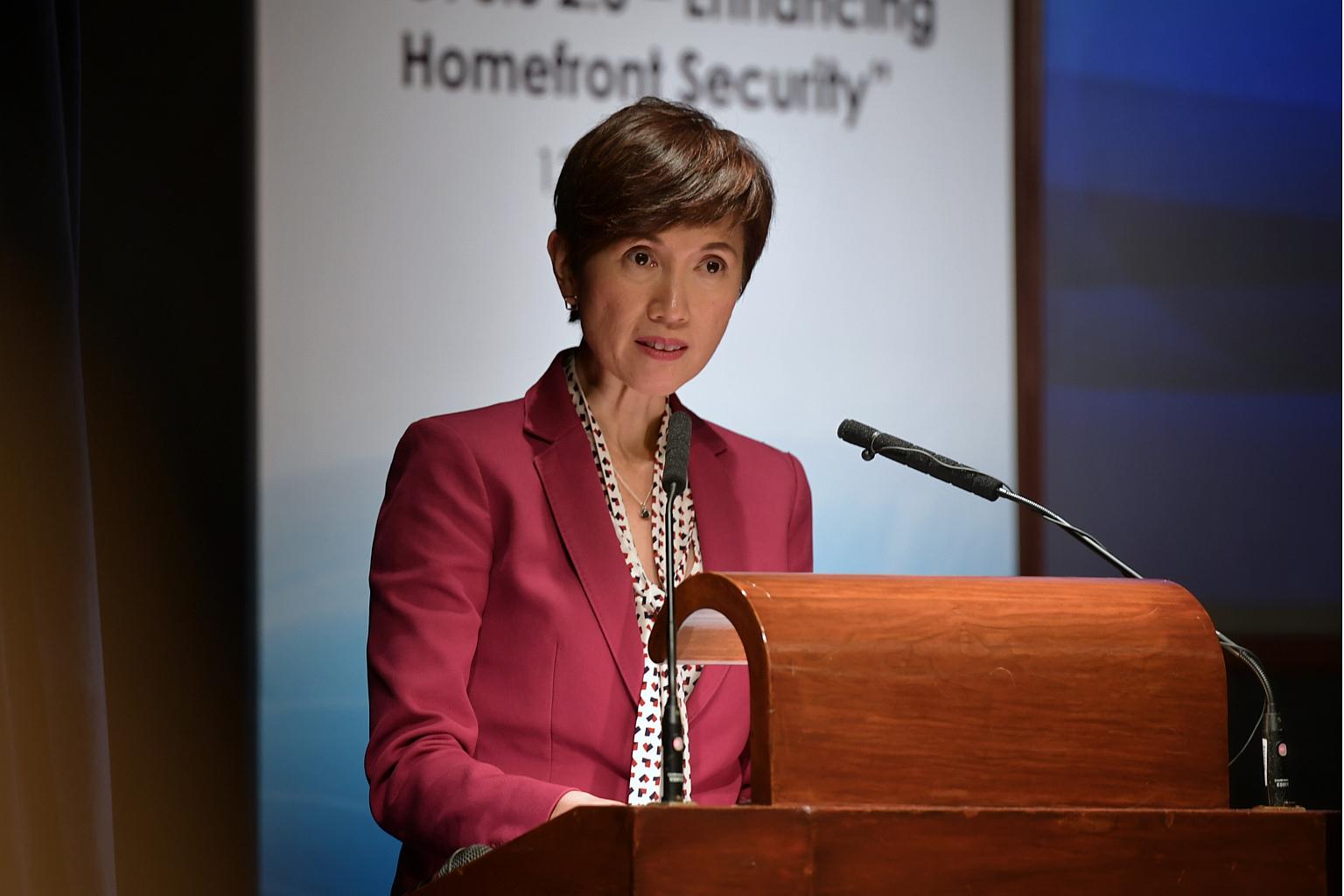Security sector to tap tech in face of manpower crunch
Govt to lead way with outcome-based security tenders rather than manpower-based ones
Sign up now: Get ST's newsletters delivered to your inbox

Second Minister for Home Affairs and Manpower Josephine Teo said the Government will lead the push for technology and innovation, and will provide support for industry players.
ST PHOTO: KUA CHEE SIONG
Follow topic:
The security sector will be facing a wave of sweeping changes, with the industry being pushed to adopt technology and IT to combat a shrinking local workforce, rising staff costs and heightened terrorism threats.
The aim is to entice and train better-skilled manpower in the sector and shift the industry from staff strength as a solution to outcome-based contracts, such as response time in a crisis.
The Government will lead the push for technology and innovation, and will provide support for industry players under the security Industry Transformation Map (ITM), Second Minister for Home Affairs and Manpower Josephine Teo said yesterday.
She was addressing more than 250 guests, including tripartite stakeholders in the sector and government agencies, at the launch of the security ITM at the Lifelong Learning Institute in Eunos.
Mrs Teo, who is also Minister in the Prime Minister's Office, said that the growing demand for security services cannot be sustained if the industry remains manpower intensive.
She added that many security officers work long hours to compensate for the existing manpower shortage. There are now 47,000 security officers in Singapore.
While employment in the sector has been growing at about 5 per cent annually over the past five years - almost double the growth rate of overall employment - it still has the highest number of job vacancies among rank-and-file workers.
Under the ITM, led by the Ministry of Home Affairs (MHA), the Government will invest some $10 million in the next three years to support technology and innovation in the industry, help users source for services that will best meet their security needs, and improve skills acquisition and career progression.
"Bearing in mind that jobs are improving in other sectors, this means the security industry will face even stiffer competition in recruitment and retention in future," she said.
The MHA's Centre for Protective Security Studies and the Security Industry Institute under Temasek Polytechnic will be developing a new specialist diploma in security consultancy to raise skills and support career advancement. It will cover topics such as risk assessment and security technologies.
The Government will also take the lead to push for change in the format of security service tenders, to put out outcome-based contracts instead of manpower-based ones.
For instance, instead of stating the number of guards required in a tender, an organisation could indicate the extent of time within which it expected a security threat to be responded to. To do this, the organisation will first need security risk assessments done.
Mrs Teo said statutory board JTC will be launching an outcome-based tender for the guarding of a cluster of its properties, and expects to see productivity savings of over 20 per cent through the project. By 2020, most government agencies will adopt these new contract formats.
A new pilot grant by the NTUC U Care Centre, called the Smart Sourcing Initiative, will also encourage service buyers to adopt such contracts and train procurement staff .
Mrs Teo said: "A successful transformation of the security industry must bring about better value for buyers (of services), better jobs for Singaporeans, and at the same time, better security for Singapore."
• Additional reporting by Aw Cheng Wei
SEE TOP OF THE NEWS

